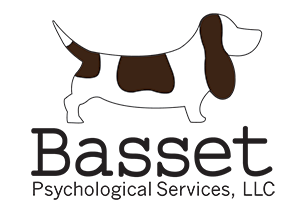
Areas of Expertise
Initial Appointment
All of our services begin with an initial appointment with you to find out how we can help you and your family best. We like to meet with parents and adolescents together; but, with younger children, it is sometimes easier to meet with just parents for the first appointment. We ask that you complete our Child Developmental History and our Psychological Services Contract, and bring them with you to your appointment. The initial appointment takes approximately 90 minutes and gives you a chance to tell your story, and it gives your psychologist a chance to get to know you and your family. Your psychologist will also go over these forms at the beginning of your initial appointment
Our goal is that the initial appointment gives you and your psychologist a chance to begin building a therapeutic relationship. Most families feel relief and optimism after the first appointment because they have finally had the chance to tell their story. At the end of the session, you and your psychologist will decide together what the next step is for you and your child.
Child, Adolescent and Young Adult Psychotherapy
Psychotherapy can take many forms, but the goal is always to change or improve thoughts, feelings, or behaviors. Some of the more common presenting concerns addressed by BPS include the following:
-
Depression
-
Anxiety
-
Impulsivity & hyperactivity (symptoms related to ADHD)
-
Oppositional & defiant behavior
-
Anger/aggression
-
Family conflict
If you don't see the problem your child is struggling with on the list, don't panic. Psychotherapy at its most basic form is about identifying what behaviors or thoughts need to happen more (or less) and developing a plan to make that happen. During your initial session, you and your psychologist will discuss preliminary treatment goals and schedule your first therapy session. Psychotherapy sessions are typically (but not always) 45 minutes long and are generally scheduled on a weekly or biweekly basis. Consistency is important in psychotherapy; therefore, BPS tries to schedule clients for sessions at the same time and on the same day whenever possible.
Psychotherapy with children and adolescents works best when parents are involved, so it will be important for you to accompany your child and participate in his or her therapy sessions. Sessions with adolescents usually involve more private one-on-one time with the psychologist, but parents of young children are more involved in sessions. By being involved in your child's treatment, you will be able to review skills, concepts, and goals at home. We can cover a lot of ground in a session, but psychotherapy becomes much more effective when families apply what they learn during sessions at home during the week.
Parent-Child Interaction Therapy (PCIT)
Parent-Child Interaction Therapy (PCIT) is a parent training intervention that teaches caregivers specific behavior management techniques to use as they play with their child. PCIT sessions are generally 60 minutes long, and focus on improving the caregiver-child relationship and increasing children’s positive behaviors. Parent-Child Interaction Therapy averages from 12-16 sessions and focuses on two basic interactions: Child Directed Interaction (CDI) and Parent Directed Interaction (PDI). During CDI, parents are taught to follow their child's lead to improve the parent-child relationship and increase desired behavior through the use of attention. During PDI, parents learn to use effective commands and specific behavior management techniques as they play with their child. PCIT is fun for both the parent and child. Parents generally see marked improvement in 3-4 sessions.
PCIT is an exceptionally effective treatment backed by over 20 years of research. Live coaching is the primary method of caregiver training in PCIT. Caregivers are coached in specific play therapy and discipline skills by the therapist through an earpiece while the therapist observes the caregiver and child.
Psychological Testing
The purpose of the psychological evaluation is often to clarify a diagnosis, to more fully understand learning strengths and weaknesses, and to identify recommendations for next steps. These evaluations can also serve as a baseline measure to compare future performance and functioning.
The comprehensive psychological evaluation has components to assess intellectual, academic, and psychological functioning which include:
-
Intelligence testing
-
Achievement testing
-
Behavioral questionnaires
-
Self-report questionnaires
-
Written report with recommendations for next steps



